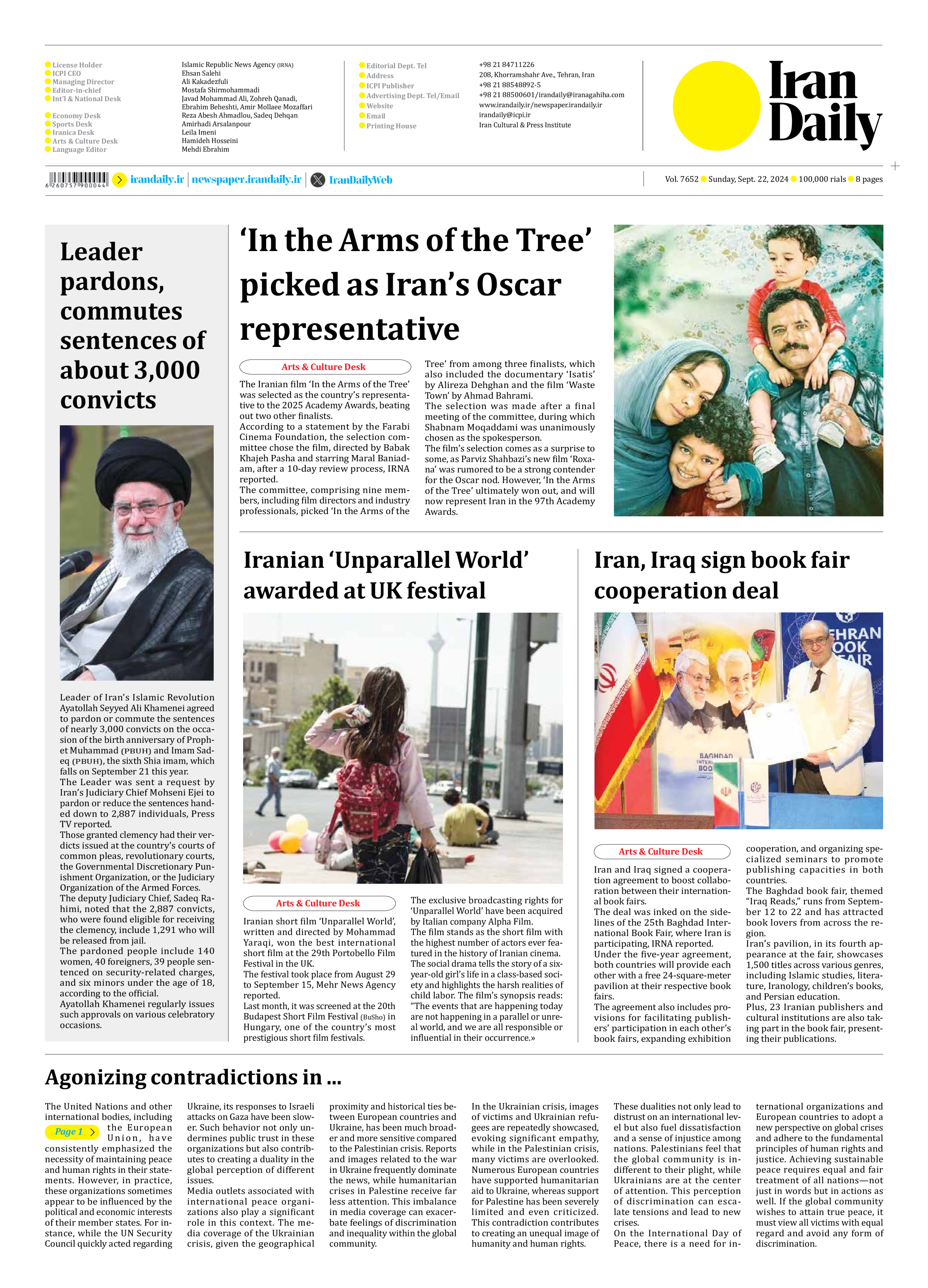
Agonizing contradictions in ...
Page 1
The United Nations and other international bodies, including the European Union, have consistently emphasized the necessity of maintaining peace and human rights in their statements. However, in practice, these organizations sometimes appear to be influenced by the political and economic interests of their member states. For instance, while the UN Security Council quickly acted regarding Ukraine, its responses to Israeli attacks on Gaza have been slower. Such behavior not only undermines public trust in these organizations but also contributes to creating a duality in the global perception of different issues.
Media outlets associated with international peace organizations also play a significant role in this context. The media coverage of the Ukrainian crisis, given the geographical proximity and historical ties between European countries and Ukraine, has been much broader and more sensitive compared to the Palestinian crisis. Reports and images related to the war in Ukraine frequently dominate the news, while humanitarian crises in Palestine receive far less attention. This imbalance in media coverage can exacerbate feelings of discrimination and inequality within the global community.
In the Ukrainian crisis, images of victims and Ukrainian refugees are repeatedly showcased, evoking significant empathy, while in the Palestinian crisis, many victims are overlooked. Numerous European countries have supported humanitarian aid to Ukraine, whereas support for Palestine has been severely limited and even criticized. This contradiction contributes to creating an unequal image of humanity and human rights.
These dualities not only lead to distrust on an international level but also fuel dissatisfaction and a sense of injustice among nations. Palestinians feel that the global community is indifferent to their plight, while Ukrainians are at the center of attention. This perception of discrimination can escalate tensions and lead to new
crises.
On the International Day of Peace, there is a need for international organizations and European countries to adopt a new perspective on global crises and adhere to the fundamental principles of human rights and justice. Achieving sustainable peace requires equal and fair treatment of all nations—not just in words but in actions as well. If the global community wishes to attain true peace, it must view all victims with equal regard and avoid any form of discrimination.







